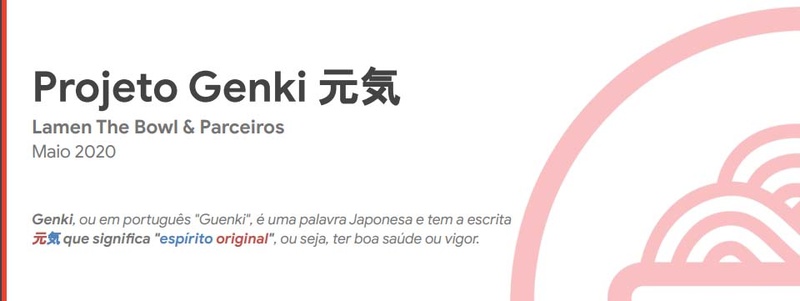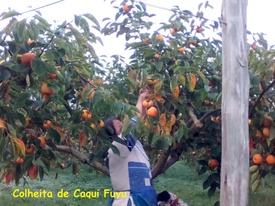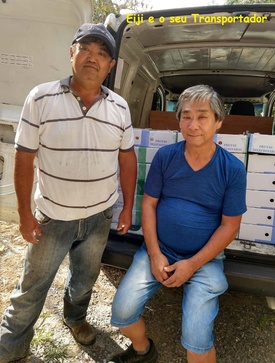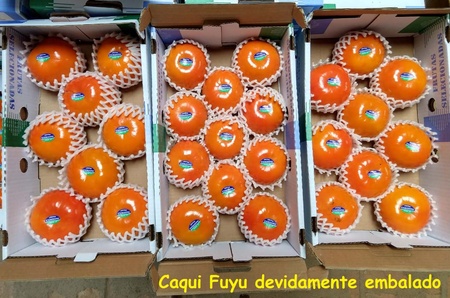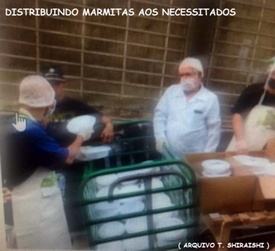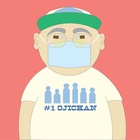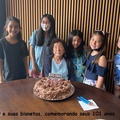As has happened in other countries, Covid-19 hit Brazil in a devastating way, showing those who did not believe in it, its lethal malignancy.
On May 9, more than 10,000 deaths had already been recorded, with catastrophic numbers expected to reach in the coming months, despite the containment measures taken by the country's health authorities. Horizontal quarantine was adopted to try to combat evil. With this, the doors of commerce and industry were closed; the movement of people was prohibited. Only some activities considered essential continued to operate, such as drugstores, bakeries, gas stations, supermarkets, street markets.
With restaurants, bars, hotels no longer operating and street markets operating precariously, a short circuit with serious consequences occurred across the entire production chain, from family farming, poultry farming, fish farming, livestock farming, among others.
The pandemic reached all activities, segments and society in general. Rich, poor, businessmen and employees, retirees, housewives, no one was spared.
The Japanese-Brazilian community, very concentrated in São Paulo, was not unscathed by the disaster, suffering the consequences in different ways.
In agriculture, where there is still a significant participation of Nikkei in productive activities, with their farms and farms located in the so-called green belt around the Capital of São Paulo, and from where the vegetables, legumes, cereals, fruits, fish, chickens that supply the large distribution centers, supermarkets and open-air markets, the lamentation and loss is widespread.
In Ibiúna, 70 km. from SP, Yamada-san, 65, was forced to throw away 100 boxes of vegetables because he had no one to sell them to. In Mogi das Cruzes, another city close to the Capital, farmer Onoe-san, 54, had to leave almost all of his Rama Forte Persimmon production on the tree, ripe, due to a lack of buyers. In South Pillar, Tanaka-san, 63, had to reduce the planting of vegetables and still is losing everything on the farm. “I threw a bunch of seedlings away and ordered the nursery to stop producing! It has only been a loss, but it is still too early to do the math, as the situation is only getting worse”, he says with an expression of discouragement.
In the Vale do Paraíba region, where the participation of Nikkei flower growers is significant, concern is general. There is no demand for their beautiful flowers, such as orchids, roses, chrysanthemums, tulips, all of which are short-lived and need to be sold immediately. Last week, desperate messages were circulating on WhatsApp offering pots of orchids, in boxes, at cost, with the right to home delivery. The same happened with fresh shimejis, which it was possible to purchase through this solidarity chain.
Fruit grower Eiji Enokizono , 50, who has lived in Piedade for years, once again used his creativity to minimize the damage. A few years ago, it went through a difficult phase as a result of market instability. On that occasion, it looked to Rural Tourism for a way to better sell its fruits, such as fuyu persimmons, peaches, strawberries, lychees, dragon fruit, always of excellent quality. Instead of delivering the boxes to sales outlets, such as CEAGESP and convenience stores, where the profit was lower due to the intermediation cost, he sought to intensify people's visits to his site, as a form of leisure. To this end, it attracted interested parties by offering a rich breakfast, lunch (assorted bento) and picking fruit directly from the tree. In addition to selling fruits at more advantageous prices and receiving cash in cash, I had extra income from the buffet offered (coffee and lunch), in addition to selling preserved foods ( rakkyo , shimeji, fukujinzuke , hearts of palm) and fresh vegetables, all produced on site.
With the arrival of Covid-19, however, he had to change his strategy. With everything closed and people unable to leave, fruit grower Eiji's instinct for survival and creativity spoke loudly: he hired a transporter to deliver the orders received to his home, taking advantage of the contact and relationship network he managed to build in recent years. Fortunately, it is working!
And, in the midst of the crisis, his son Seiji, a future chef, arrived with another good idea. He included his father's business – Sítio Enokizono – in the GENKI Project , which is an online sales platform, in the delivery system, which includes other promising companies in the community. Basically, customers order online and receive the product at home. From food to fruit and vegetables, with all the convenience and quality. Another sales channel! It is the farmer entering the era of modernity and technology.
As was predictable, the isolation imposed by the pandemic is having a huge impact on the city of São Paulo, a metropolis with many social inequalities. The needy population, those most in need, are going through a lot of deprivation at this time. Fortunately, sensitivity and solidarity appear in various corners of the city. Praise here is the “Water in the Beans Movement” initiative, bringing food to those who need it most, led by chef Telma Shiraishi, one of the most renowned Japanese cuisine professionals in Brazil. She and several NGOs linked to the Japanese community in São Paulo came together to develop a food program for the neediest population on the outskirts of the Capital during the period of greatest worsening of the crisis in São Paulo, with the aim of complementing the various other actions in progress, promoted by public and private entities.
It is planned to supply 300 to 400 lunch boxes per day, 7 days a week, using the physical and operational structure of the Aizomê Restaurant owned by chef Telma. It is a positive point to highlight.
What is regrettable, however, is the information about the cancellation, as a result of the quarantine, of the traditional Certificate Delivery Ceremony to Honorees who turned 99 years old ( Hakujusha Hyosho ), promoted annually by Bunkyo – Brazilian Society of Japanese Culture. A ritual of deep meaning for pioneers and their families. The sadness becomes even greater because Aiko Higuchi, my dear mother, would be one of those honored this year. She will turn 100 in January 2021.
We realized, at first glance, that the Nikkei citizens residing in this blessed Brazil, perhaps due to the culture and values received from their ancestors, in which discipline, respect and determination prevail, are knowing how to face the difficult moment, with great serenity and bravery. .
There is no doubt that the Covid-19 epidemic will not last forever. It will pass! One day, it will pass! Without a doubt, leaving unforgettable consequences. As are the stories of heroism and overcoming. We must never lose faith in the human capacity to overcome adversity.
© 2020 Katsuo Higuchi


